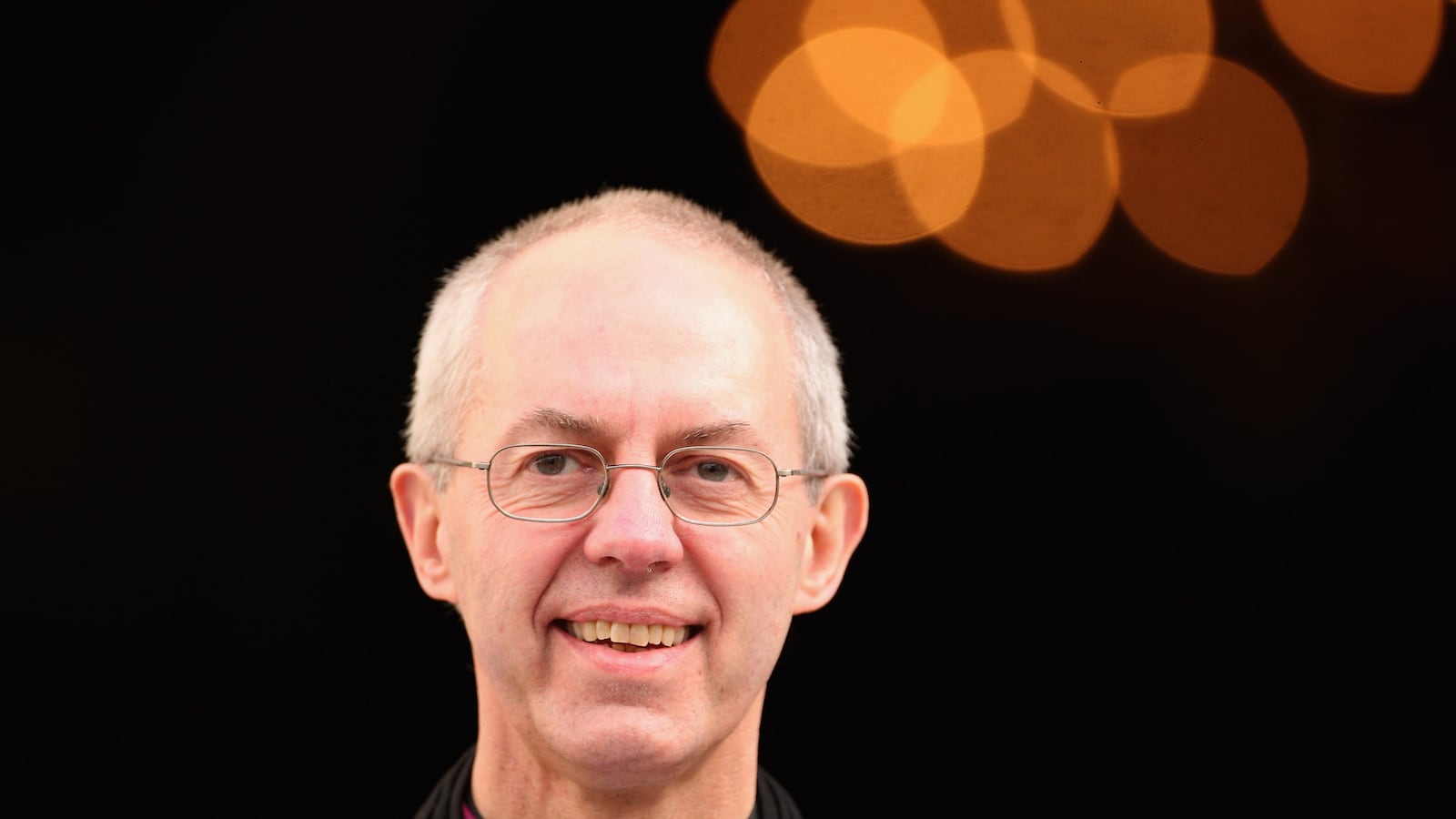It may seem strange to God-crazy America that the Archbishop of Canterbury, Britain’s most senior church leader, and the leader of 80 million Anglicans worldwide, should admit to doubts about the existence of God.
“I mean there are moments, sure, where you think, ‘Is there a God?’, ‘Where is God?’” Justin Welby said during an interview at Bristol Cathedral.
“I go—well, I call it running, the dog calls it holding her back—in the morning,” he said. “The other day I was praying over something as I was running and I ended up saying to God ‘Look, this is all very well but isn’t it about time you did something, if you’re there?’—which is probably not what the Archbishop of Canterbury should say.”
But he did, and it's of absolutely no surprise to anybody. It's so him: the thinking churchman who interrogates his relationship with his faith and calling. Plus, everything about his quote is British in the best way. The Archbishop of Canterbury questions the presence of God, not clutching his temples beneath stained glass, but while out running with his dog in the morning. Also, being British, he self-deprecates even on the issue of whether you could call this form of exercise “running.” That, America, is the quintessence of naturally occurring British-cute.
Welby also admitted he couldn’t explain suffering. “We know about Jesus, we can’t explain all the questions in the world, we can’t explain about suffering, we can’t explain loads of things but we know about Jesus. We can talk about Jesus—I always do that because most of the other questions I can’t answer.”
Welby is self-evidently a progressive person, and a thoughtful, sensitive one. He must also be a politician, holding an office which requires nimbly treading around the bonkers beliefs of extremists who exist under the umbrella of his Church and whose agenda he doesn’t share.
In July, he said he said he was “delighted” by the Church of England voting to allow women to become bishops, while acknowledging others would “struggle” with it. He wanted to “hold everyone together” and to treat people as a family rather than as “party groups in which you chuck out the people you disagree with”.
As for gay marriage, Welby got himself into a fine old tangle in the summer, first telling gay website Pink News that it was “great” the UK had passed marriage equality. After the interview, the Church of England—whose press minders, you sense, are always thinking when Welby is near a microphone, “Oh, what has he said now?”—said he still objected to gay marriage in principle.
However, Welby told Pink News: “As you know I have said, and got a fair amount of flak for it within parts of the Church, we have to accept, and quite rightly, that the same-sex marriage act is law, and that it’s right and proper, it’s the law of the land, and that’s great.”
“What’s my message to the gay community?” the Archbishop said before, reportedly, “pausing for several seconds.”
“We are struggling with the issues across the Church globally. It’s complicated with ramifications that are very difficult to deal with in many parts of the world.”
That diplomacy again. If you read between the lines, Welby means this: Somehow I have to keep the African Anglican wing on board, to keep numbers up and keep this precarious institution on the tracks—and they think gays should burn in Hell.
Of course, one wishes he would face the bigots down more emphatically, though the Church seems to move at a glacial pace on such matters. Any improvement typically seems seismic.
In the meantime, Welby is not, at least, spouting ugly bigotry. But no Archbishop could in the Britain of 2014. Instead, he is the embodiment of mainstream, temperate British Christianity, which majors on consideration for others, and charity and community-building, rather than feverish judgment. He is also socially committed: Last year he even picked a fight with loan sharks. While squarely of the Establishment (he went to Eton and Cambridge, and had a lucrative career in oil for a number of years), he gave it all up to be a vicar. In the Church of England, as a Guardian profile outlined, his dynamism was atypical. One of the most piercing observations of the article is that while those who had worked with him trusted Welby, no one knew him. Such inscrutability can confer its own power, of course.
But Welby’s pragmatism and apparent decency stand for (at least in the UK) a non-extreme Church, in tune with the—broadly—socially progressive, tolerant and embracing country the UK has transformed into.
Sure, we have our extreme elements—I once endured a radio interview alongside a Christian, who definitely did not extend understanding towards gay people—but generally “church” is something to be attended on Sundays if that is your thing. There isn’t much fire and brimstone. The chief worry is that the flower displays are up to standard, and—personally—whether you are doing “the right thing” (which is to say behaving properly, politely and socially responsibly).
This is why there will not be much hand-wringing over the Archbishop of Canterbury confessing to doubting the existence of God. It was a piece of personal truth-telling of a thoughtful man. It speaks to a non-church-attending population which broadly may think the same, especially in such a conflict and suffering-riven world. Whether deliberately or not, at such moments Welby is effectively preaching to a much broader “church” than his Church—and doing so impressively.






